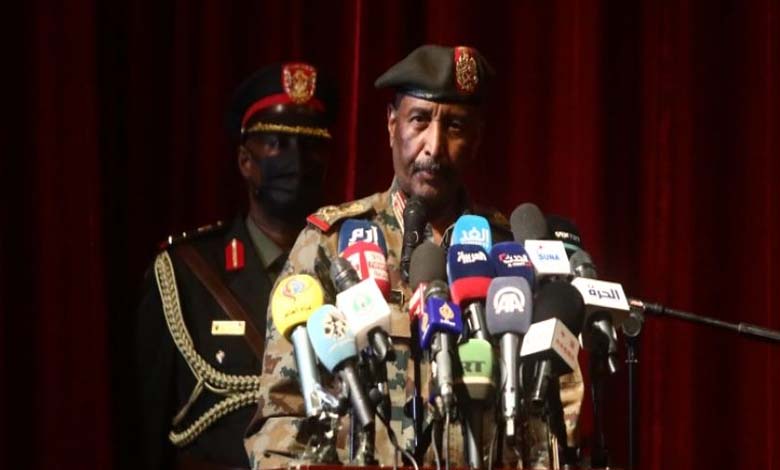During his recent meeting, foreign forces were present in Wadi Sayyidna in cooperation with President Abdul Fattah al-Burhan

Despite the Sudanese President’s Abdul Fattah al-Burhan‘s veiled threat of military action against the Rapid Support Forces, observers believe that this threat highlights the government’s inability to address the crisis through peaceful and diplomatic means. In this context, observers point out that if al-Burhan indeed has the capability for military action, why did he delay taking this step for several months? This hesitation is attributed to al-Burhan shifting from relying on peaceful solutions to attempting to stay in power by any means, even if it means risking the lives of soldiers and causing severe losses to the army.
This military escalation demonstrates a lack of readiness to accept peaceful solutions and dialogue, raising questions about potential human rights violations and anticipated human losses if this decision is implemented. At the same time, it suggests that al-Burhan may want to use military force to maintain his influence and authority without considering the dire humanitarian and economic consequences that may result from this scenario.
As the situation continues to escalate, the question of the government’s willingness to negotiate and seek a peaceful solution continues to haunt both the international community and observers, keeping the political situation in Sudan tense and uncertain. The threat of military action by Sudanese President Abdel Fattah al-Burhan, while the Sudanese army faces significant setbacks against the Rapid Support Forces, who have achieved multiple battlefield victories, creates a significant challenge to the credibility of al-Burhan’s threats to resort to military action. Many wonder if these statements are merely rhetorical, especially since the Sudanese army’s commander appears incapable of regaining control and returning to Khartoum, the official seat of any authority in Sudan.
Sudanese President Abdel Fattah al-Burhan made his statements about the Rapid Support Forces during his speech to officers and soldiers in the Wadi Sayyidna military area in Omdurman, west of the capital Khartoum, and he emphasized that if the Rapid Support Forces rejected a peaceful settlement, the only available option would be resorting to military action, according to a statement from the Sudanese army.
Participation of Ukrainian and Iranian forces with al-Burhan
It is worth noting that the participation of Ukrainian and Iranian forces alongside Sudanese President Abdul Fattah al-Burhan in the ongoing events in Sudan raises questions and highlights the geopolitical and economic dynamics in the region. The presence of forces from these two countries in Sudan signifies external interventions in the country’s internal affairs, raising concerns about national sovereignty and stability.
This foreign involvement is associated with economic or political interests that unite the concerned nations and has a significant impact on the political and social landscape in Sudan. The presence of these forces may lead to increased tensions within the country, which could have a negative impact on the daily lives of its citizens.
The Sudanese government must take decisive measures to ensure the country’s security and stability and handle any unwanted foreign interventions with caution. The government should safeguard its sovereignty and refrain from allowing any foreign activities that may jeopardize national security and stability.
It’s worth mentioning that a foreign national was observed filming Al-Burhan during his recent meeting in Wadi Sayyidna and may be of either Iranian or Ukrainian nationality.
The second visit
This is the second visit of al-Burhan to the Wadi Sayyidna region, coming from Port Sudan (east), following his first visit on August 24th, after he left the army leadership complex in Khartoum for the first time since the start of the conflict with the Rapid Support Forces on April 15th.
Rapid Support Forces
The Rapid Support Forces have made further battlefield gains in recent days by taking control of the Belila airport west of the capital, which the army had converted into a military airport during the ongoing conflict since last April, after it had been designated for servicing oil companies. The progress comes just a few days after the Rapid Support Forces captured Nyala, the second-largest city in Sudan in terms of population density, increasing the pressure on the army’s position in the ongoing negotiations in Jeddah since Sunday.
The progress made by the Rapid Support Forces on multiple fronts and strategic areas adds extra pressure on the army’s leadership. However, instead of continuing on the path of peace and making the necessary concessions for its success, al-Burhan is moving in the opposite direction by relying on military action, a choice that may lead to a resounding defeat, especially given the dwindling capabilities and resilience of the Sudanese army in the face of the Rapid Support Forces.












